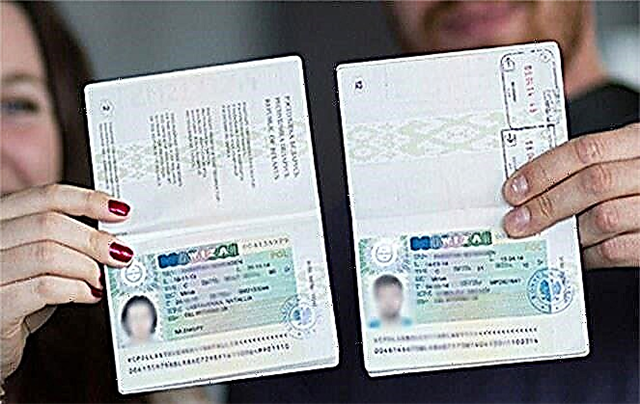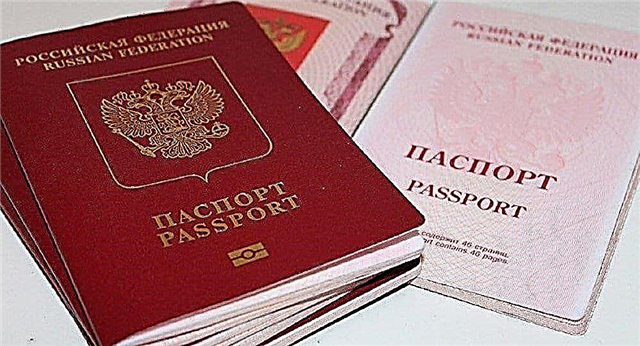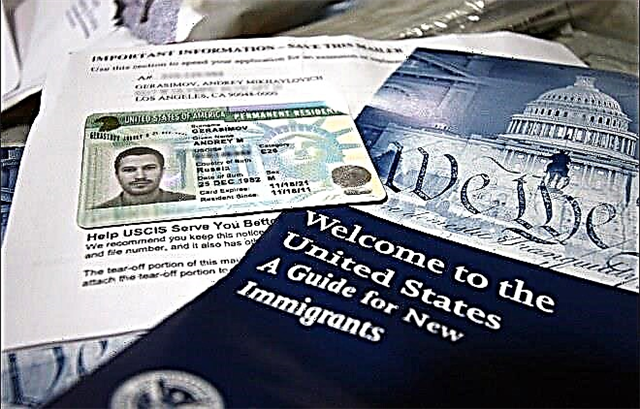When you need to find a large amount of money in a short time, a loan helps. But it is not always possible to follow the plan and repay the loan on time. As of 2021, 1.6 million debtors are banned from traveling abroad in the Russian Federation. It becomes a rule, when planning a vacation or a meeting for work abroad, to check whether it is possible to go abroad if there is a loan debt.
Who restricts the departure of debtors abroad
By themselves, the Border Guard Service and the Department for Migration Affairs of the Ministry of Internal Affairs will not be interested in the credit history of citizens and prevent Russians from leaving abroad. The Federal Bailiff Service (FSSP) has the right to issue an order banning leaving Russia.
It will be impossible to go abroad if there is a debt on a loan or other payments, only after a court decision is made and it comes into force. After a decision is made by the court, the bailiff will be able to open enforcement proceedings and will have the right to send a decision to restrict travel abroad to the migration and border services.
From October 1, 2021, the minimum amount of debt at which a restriction on traveling abroad can be set is 10 thousand rubles. for alimony and damages debts and 30 thousand rubles. - for debts of other categories.
The debtor first receives a notification - he is given 5 days to pay off the debt. If there is an unpaid fine for violation of the traffic rules, the traffic police sends the materials to the court after 2 months from the date on which the offender was fined. The police officer will expect payment of the administrative fine within a similar period of time.

An application for debt collection on a loan can be submitted at any time at the discretion of the banking institution.
It turns out that it is impossible to say with certainty about the existence of a ban on traveling abroad, even if there are overdue payments on the loan and enforcement proceedings have already been opened. The debt collector does not have the right to independently establish a restriction on crossing the country's border.
To know for sure whether a ban is imposed and is legally valid, it is necessary to check that the following conditions are met at the same time:
- There must be a writ of execution indicating the reasons for imposing a ban on travel outside Russia; it can be a judicial act or a document that was issued on its basis.
- A copy of the bailiff's decree must be handed over to the person restricted to travel abroad, the border and tax service no later than the next day from the date of the court decision.
- The judicial act must enter into legal force. That is, either the existing complaints were rejected, or the time limit for appealing the decision expired.
- The writ of execution must not be overdue. The limitation period is 3 years from the date of entry into force of the judicial act.
- The amount of debt in accordance with the writ of execution must exceed 10 thousand rubles, or the document must not imply the fulfillment of property obligations.
In order for the ban on traveling abroad in relation to the borrower to take effect, it is necessary that all the indicated steps have been completed:
- An authorized representative of a banking institution must file a statement of claim with the court to recover the debt from the debtor.
- The court must make a decision to collect the debt from the borrower.
- The writ of execution must be transferred to the FSSP.
- The creditor must submit an application demanding the imposition of a ban on the debtor's travel abroad.
- The bailiff must decide to restrict the right to travel outside the country and send a decree to the borrower, to the border and migration services.
- The Border Guard Service must enter information about a citizen restricted to travel to the database.
It also happens that the travel ban was in effect for the prescribed period of 6 months, and after the specified time, the creditor forgot to submit an application to extend the restriction, and the bailiff did not do this. Therefore, it makes sense to double-check the existence of a ban if it was imposed a long time ago, and the debt was never repaid.
Having a loan without delays in payments or with a slight delay will not be an obstacle to traveling abroad.
As for credit card arrears, the bank will wait to the last without filing a lawsuit, since the most profitable option for it will be to increase the borrower's debt. This approach is legal, since the loan agreement says about fines and penalties. But the statement of claim will certainly be filed with the court within three years, since later the law does not allow collection of debts due to the expiration of the statute of limitations.
What types of debts can become an obstacle to traveling abroad
Almost any debts can become the reason for imposing a ban on the debtor's departure from the Russian Federation, if the debt is confirmed in court. In particular, a ban on crossing the border can be established for the presence of the following debts:
- on taxes and fees (for individuals, these can be debts to pay transport, land, property taxes, personal income tax);
- on overdue loans and borrowings;
- for alimony (for the maintenance of children, disabled parents, other dependents);
- on payments for utilities (rent, water supply, sewerage, gas, electricity, removal of household waste);
- on administrative fines (can be imposed by the police, traffic police, customs service, labor inspectorate, tax service);
- to individuals (fulfillment of obligations assumed, including debt, which can be confirmed in court).
As a rule, citizens are aware of the presence of debts: court decisions and summons from the bailiffs arrive by mail, and the collectors call the mobile phone specified in the loan agreement.
But it also happens that the citizen did not know about the existing debt. For example, he does not live at the place of registration and rarely receives correspondence that is brought to the old address. Therefore, before going to the border before going abroad, it is better to check yourself for any restrictions.
What are the ways to check debts
There are several ways to find out if a citizen has any debts that could become an obstacle to leaving the country:
- Submit a request on the website of the Federal Bailiff Service. To do this, you need to go to the Internet reception and state the essence of the issue. It will take a long time to wait for a response from a specialist - about 30 days.
- Apply to the Main Department of Internal Affairs of the Ministry of Internal Affairs for registration of a passport. If there is a travel ban, the document will be refused.
- You can do this quickly, securely and online using the proven Neo-Departure service.
- Submit your request through the official website of the FSB. To do this, you need to find the section "Public services", go to the tab "Consideration of appeals and requests", then - "How to get" and "Web reception". The answer will come within a month.
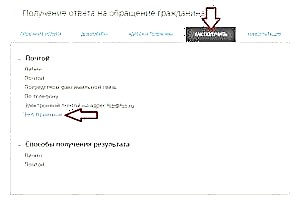
- Check online using the free services of the following sites:
- the official portal of the FSSP;
- the official Internet resource of the Federal Tax Service;
- the official website of the State Services.
Keep in mind that if a ban is imposed, you must pay off the debt in advance - 1-2 weeks before the expected date of travel. The fact is that the process of removing restrictions takes a long time.
Checking debts by last name through the FSSP website
If the debt has already been recognized by the court, information about the enforcement proceedings will be available on the official website of the FSSP. To check yourself for the presence or absence of debt, follow the instructions below:
- Go to the FSSP website - a form with the words “Find out about your debts” will open. Here you will need to enter your surname (if there is a letter "e" or "ё", you need to write, as indicated in the passport) and first name. You can also print a middle name, and individual entrepreneurs can indicate the number in the specified format. Below is a drop-down list, open it and select a territorial authority.

- On the page that opens, re-enter the required data using the search in the database of legal entities, individuals and individual entrepreneurs.
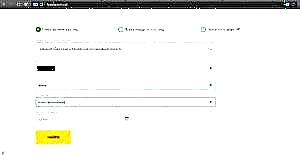
- After clicking the "Find" button, the search will be launched. A table with the results will be displayed above the completed form. Please note that information about your full namesakes may also appear here, and therefore it is better to specify the middle name and date of birth.
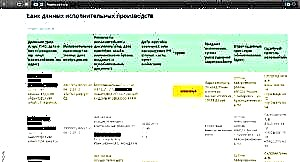
- If there is no table and you see the inscription “Nothing was found for your request”, there are no travel restrictions.
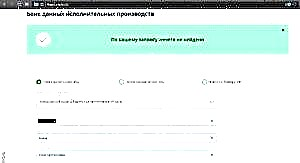
How to find out about debts on the website of the tax service
In order to check whether a citizen has unpaid taxes, you can use the service on the FTS website, but for this you need to be a registered user. It is impossible to register without a personal appeal to any branch of the tax service - employees of the Federal Tax Service must accept a completed application form from the applicant (the form and sample will be issued on the spot) and issue a temporary password for registration on the portal.
When you have a personal account on the site, you need to set your own strong password. Then stick to the following scheme:
- Enter your username and password, enter the taxpayer's personal account.
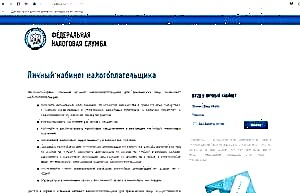
- Click on the "Debt" link as indicated below:
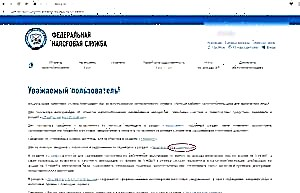
or at the bottom of the page: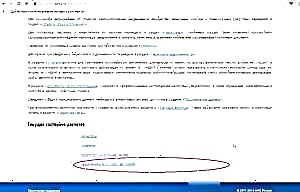
- A window with a table will open, in which you will see the properties you have. Also, information about the amount of tax payable, about received overpayments and about debts will be displayed here. Information constituting a tax secret is not made publicly available.
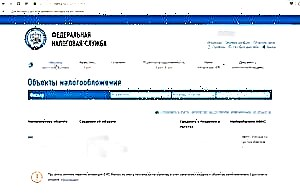
Checking debts according to the lists of the Ministry of Internal Affairs and the State Traffic Safety Inspectorate
The GUVM of the Ministry of Internal Affairs (formerly the FMS) does not report the presence of debts and the possibility of leaving the Russian Federation - there is no such information on the official website of the department. As for the official Internet resource of the State Traffic Inspectorate, there is a service designed to search for unpaid fines. To check, you need to follow 3 steps:
- Follow the link to the service page for checking unpaid fines for traffic violations.
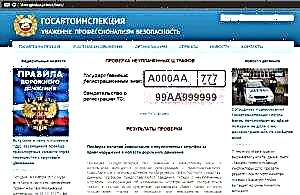
- Enter into the form the state registration plate and the number of the vehicle registration certificate.
- Click on the "Request verification" button located just below the form.
The site provides an explanation that the check will be carried out without reference to a specific citizen - you will receive information about traffic offenses that were committed using the checked vehicle. Paid fines will not be displayed.
If you made a payment, but the fine was displayed as unpaid in the search results, it means that the banking institution in which you made the payment did not manage to transfer or incorrectly transmitted payment information to the State Information System on State and Municipal Payments (GIS GMP). If you are sure that the fine has been attributed to you inappropriately, on the same site you can send a complaint through the service for accepting requests.
It is submitted in the form of an electronic document signed with an electronic signature by the person in respect of whom the decision was made. The file is attached to the appeal, the text of which informs about the attached signed document.
You can also check debts according to the lists of the Ministry of Internal Affairs and the traffic police on the official website of the State Service, where you need to register to work with the services.

How to find out about the presence of credit debt
A list of loan debtors who are prohibited from traveling abroad is available from the bailiffs, the migration service, tax authorities and the border service. However, it is not recommended to contact the FSSP directly - this will be an extra reminder of yourself, which may provoke the initiation of a case on imposing an exit ban. Going abroad, if there is a loan from the bank, will be impossible only if the lender submits an application. If he did not do this, and you ask the bailiff about the ban, he can start an investigation.
The most logical option would be to apply to all credit organizations in which a citizen took out loans. When visiting a bank branch in person, you must have your passport with you.
It is also possible to contact the institution's employees using the hotline numbers specified in the loan agreement - in this case, you will first need to answer a number of questions from the operator, which will help to make sure that the request is coming from a specific borrower.
Finally, each credit institution has a website where you can enter the client's personal account and see the history of payments and the balance of debt.
Checking through the portal of the State Service
The popular Gosuslugi service allows you to carry out a free check of debts through the systems of the FSSP, FTS, Ministry of Internal Affairs and the traffic police, but there is no service for viewing credit history on the site. Therefore, the Internet resource will be useful only to those who doubt that credit debt can be the only reason for imposing restrictions on traveling abroad.
You can find out about the initiation of enforcement proceedings (including those related to credit arrears) on the website of the State Service as follows:
- Log in to the user's personal account. Click on the button “Check debts to bailiffs”.
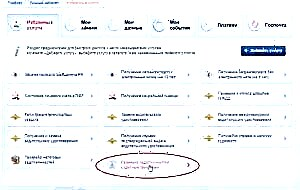
- After reading the terms of service, click on the "Get the service" button.

- You will see a table with information from the FSSP database about all enforcement proceedings. Or you will see a message about the lack of paperwork.

You can find out about the presence of unpaid taxes for the ownership of transport, real estate, a plot of land, as well as arrears in the payment of personal income tax (PIT), by following the following steps:
- Log into your personal account, click "Check tax debts".
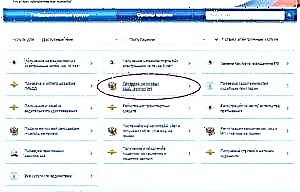
- At the bottom of the page with information about the service there will be a button “Get a service” - you need to click on it.
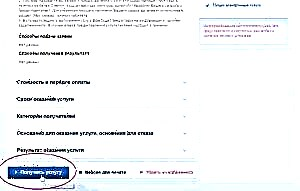
- Please read the information about the use of your personal data and check the box next to the “Agree”.
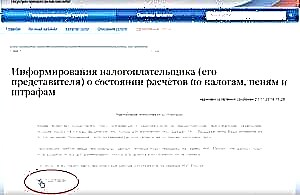
- Click on the "Next" button.

- In the form that appears, enter the TIN, last name, first name, patronymic (if available and optional), select the region of residence.
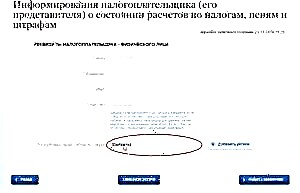
- The search can be made in all regions of Russia, but it is better to specify the subject of the Russian Federation.

- Click “Apply”.
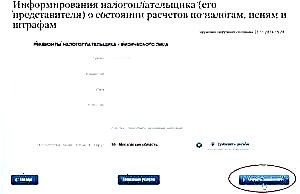
- Done - you will see a search result in the tax service database.
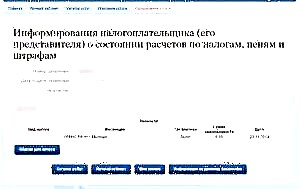
How to remove the restriction in a short time
There is only one legal way to lift the ban on leaving Russia - to pay off debts. There are also ways to get around the ban - previously it was possible to travel to Europe through Belarus, but now Belarusian border guards have access to Russian bases of persons restricted to travel abroad. Many also use the opportunity to travel outside Russia through Kazakhstan and Kaliningrad, but although these methods are not mentioned in any law as illegal, they involve circumventing restrictions by looking for gaps in legislation.
The ban on traveling abroad, imposed due to the presence of loan debt, will be lifted by the bailiffs if:
- the bank loan will be repaid in full;
- the debt on late payments, fines and penalties will be paid, so further the loan will need to be repaid according to the payment schedule in the usual manner;
- the borrower received an installment payment plan;
- the debtor has entered into a debt restructuring agreement (the bank may not agree to such conditions).
In the first two cases, the bailiff will lift the ban on traveling abroad on his own, since there will be no grounds for extending it; in the last two cases, the bank must first declare that there are no claims against the client and withdraw the application for imposing restrictions on travel abroad.
There are two more options for action that will ultimately lead to the closure of enforcement proceedings and the lifting of the ban on crossing the country's border:
- You can transfer a copy of the executive document to the debtor's employer so that he automatically withholds periodic loan payments from wages.
- Buy back the receivables of any company for a small amount, which will become an asset of the person who bought it. The asset must be transferred to the bailiff as an option for fulfilling the loan obligation (it will be valued at par, and not at the actual cost). Since, in fact, this asset is able to cover the debt to the bank, there will be grounds for lifting restrictions on travel abroad.
To speed up the process of lifting the travel ban, you can take the following steps:
- call the bailiff in charge of this case, or contact him personally in order to present a certificate from the bank on repayment of the debt;
- ask the bailiff for a copy of the decree on the lifting of restrictions on travel abroad signed by the chief bailiff and stamped with the coat of arms;
- contact an employee of the Border Service and submit a request for confirmation of receipt of a copy of the decree and the lifting of the sanctions - you can at the same time clarify the timing of lifting the ban on leaving.
How to lift the ban if there is no money to pay off the debt
When there is an urgent need to go abroad, but overdue loan obligations are withheld, one has to look for the possibility of obtaining a new loan to pay off the debt on a previously taken loan. Such a scheme is quite common in 2021.
- Competition in the bank lending market forces banks to develop unique loan products that allow them to refinance loans received from other institutions. Refinancing allows you to lower your interest rate, reduce recurring payments, and increase the overall maturity of your debt.
- Another way to get a new loan with a credit history damaged due to late payments is to arrange a loan with the participation of a guarantor, but it is not so easy to persuade an acquaintance to do this in the presence of debts, because both the borrower and the guarantor will bear responsibility for non-payment of the next loan. You can also pledge property - with such a guarantee, banks are more willing to issue money.
- Finally, you can take out a loan online using the services of a commercial site of your choice. This approach will allow you to get money in a short time, without providing income certificates and checking your credit history.
Financial companies, not banks, are engaged in lending through Internet services, and therefore loans are issued to almost everyone. But when you first apply for a loan, usually large amounts are not offered. In addition, you need to be prepared for high interest rates - this is how the bank tries to protect itself from unscrupulous borrowers and compensate for possible losses.
Conclusion
Citizens take out loans with the hope of solving current problems, and not in order to create additional troubles for themselves. The need to travel abroad may arise unexpectedly, so it is better to always be ready for this and make payments on loans and fulfill other debt obligations on time.
If the borrower is in a difficult financial situation and has lost the ability to repay the debt in the same amount, you should think about trying to restructure the debt or participate in a refinancing program. If the problem is not solved, you can lose the right to travel abroad.
It is about the debtor's status that it is easiest to “forget” when going on the next overseas vacation. The reason may be overdue loans, unpaid utility bills, alimony or fines from the traffic police. Any of these debts may threaten to restrict travel abroad, we recommend to find out information about the presence of debts using the proven service nevylet.rf


























